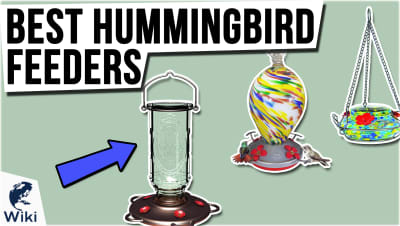5 Women Writing About Science
Encouraging female voices in scientific discourse is not just a matter of representation. By elevating marginalized groups, assumptions that have been taken for granted can be called into question, and lines of inquiry that would otherwise go unexplored can be brought to the forefront. These women work at the intersection of science and culture, exploring difficult ideas in ways curious readers can understand. This video was made with Ezvid Wikimaker.
5 Female Writers Examining And Explaining Science
Hannah Fry on the Mathematics of Love
Organizations For Women Pursuing Science
| Name | Mission |
|---|---|
| The Rosalind Franklin Society | "To showcase and support eminent scientists who are women" |
| Canadian Coalition of Women in Engineering, Science, Trades and Technology | "A recognized leader for and a voice of a national community for women in SETT, CCWESTT builds alliances and partnerships which support and celebrate a diverse SETT workforce" |
| Powers Education | To "build a strong academic foundation for college-level science courses, and simultaneously encourage and increase the number of women who will choose a career in a scientific field" |
| Women in STEMM Australia | "To connect women in STEMM regardless of their discipline and profession" |
| Earth Science Women's Network | "To build a resilient community that lifts all scientists and moves the geosciences forward" |
Debunking Health Misconceptions and Myths with Dr. Jen Gunter
In Depth
For too long, science has been thought of as a male-dominated field, which is why it's so important that women make their voices heard to break misconceptions and inspire the next generation of thinkers. Whether it's for an examination of the future of bioethics, or a celebration of mathematics, consider these women writing about science, listed here in no particular order.
Coming in first at #1 is Dr. Jen Gunter, an O.B./G.Y.N. and a pain medicine physician who discusses sexuality, science, and pop culture. Dr. Gunter seeks to build a better medical Internet in order to empower people in the search for reliable health information. She became interested in dubious science when her own children were born extremely premature.
Gunter began her mission to help provide quality information by writing The Preemie Primer, a guide for parents of premature babies. She then decided to turn her attention to reproductive health with The Vagina Bible, which seeks to answer the questions women are afraid to ask, or have trouble finding answers to.
She then decided to turn her attention to reproductive health with The Vagina Bible, which seeks to answer the questions women are afraid to ask, or have trouble finding answers to.
Next up at #2, we have Dr. Hannah Fry, an Associate Professor in the Mathematics of Cities at the Center for Advanced Spatial Analysis at University College London. Dr. Fry works alongside a unique mix of physicists, mathematicians, computer scientists, architects, and geographers to study patterns in human behavior, particularly in an urban setting.
Alongside her academic position, Dr. Fry is an experienced media personality dedicated to bringing the joy of math to the general public. Her mathematical expertise has led to the development of several BBC documentaries, and she regularly appears on UK radio, including on her long running BBC Radio 4 show The Curious Cases of Rutherford and Fry.
Coming in next at #3 is Aomawa Shields, an astronomer, astrobiologist, and Professor in the Department of Physics and Astronomy at the University of California, Irvine. Shields's research focuses on exploring the climate and habitability of small planets orbiting low-mass stars in concert with data from NASA's Kepler mission, along with other space and ground-based observations.
Shields's research focuses on exploring the climate and habitability of small planets orbiting low-mass stars in concert with data from NASA's Kepler mission, along with other space and ground-based observations.
In graduate school, Shields became fascinated by the Snowball Earth episodes of approximately 600 to 800 million years ago, where our planet may have been covered in ice from pole to pole. Her doctorate research focused on the effects of the interactions between a star and an orbiting planet. Those interested in reading more of her work can find articles of note on Shields's website.
Arriving at #4, we have Katrina Karkazis, a cultural anthropologist who is the Carol Zicklin Endowed Chair in the Honors Academy at Brooklyn College, City University of New York, and a Senior Research Fellow with the Global Health Justice Partnership at Yale University.
Her book, Testosterone: An Unauthorized Biography, written with Rebecca Jordan-Young, unsettles a great deal of long-standing knowledge and beliefs about the mysterious hormone. This work was supported by the National Science Foundation and the Brocher Foundation, as well as a Guggenheim Fellowship and an American Council of Learned Societies Collaborative Research Fellowship.
Her book, Testosterone: An Unauthorized Biography, written with Rebecca Jordan-Young, unsettles a great deal of long-standing knowledge and beliefs about the mysterious hormone.
Finally, at #5 is Silvia Camporesi, a bioethicist who is a Senior Lecturer in Bioethics & Society in the Department of Global Health and Social Medicine at King's College London, where she directs the Masters program in Bioethics & Society.
One of Camporesi's papers discusses the possible biofuture imagined by George Church, in which humanity is able to grow humanized organs in pigs and edit them with CRISPR genome editing technologies for human transplant, and juxtaposes it with the future imagined by Margaret Atwood in her 2003 novel, Oryx and Crake.
















